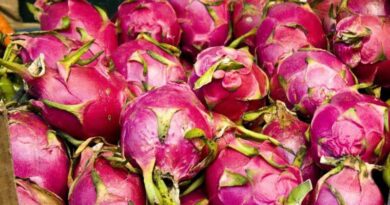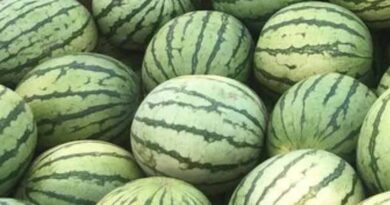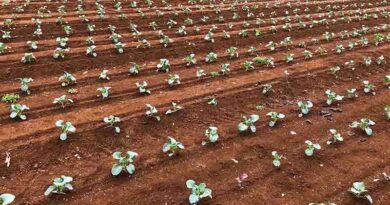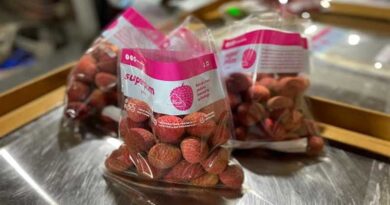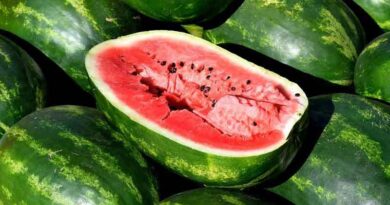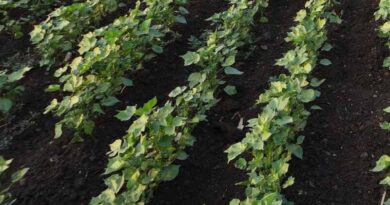From Farm to Table: Leveraging Technology to Balance Fresh Fruit Demand and Supply
Guest Author: Mr. Rohit Nagdewani, Founder, Fresh from Farm
07 June 2024, New Delhi: In the dynamic fresh fruit space, challenges have always revolved around balancing demand and supply. With perishable goods and ever-changing consumer preferences, excess inventory can lead to significant waste, while insufficient supply can result in lost sales and dissatisfied customers. However, technological advancements are now revolutionizing how this sector operates, bringing about a much-needed transformation. India’s rapidly evolving B2B2C fresh fruits demand consolidation platforms are driving the transformation, leveraging cutting-edge technologies to revolutionize how they predict demand, optimize inventory, and streamline distribution.
Data-driven demand forecasting
One key strategy employed by these platforms is data-driven demand prediction. They serve as a vast network of vendors across diverse socioeconomic demographics and amass substantial data on the quantities and qualities each vendor can sell. This invaluable information is then fed into advanced forecasting algorithms, enabling accurate regional demand predictions well in advance. Consequently, these platforms can order precisely the amount of product that can be sold, minimizing excess inventory and associated waste.
Freshness redefined with on-time inventory management
Complementing their demand forecasting expertise, companies delivering fresh fruits directly from the farm have implemented just-in-time inventory management strategies. They minimise the holding time to as little as six to eight hours, significantly reducing the likelihood of spoilage and product damage. With this innovative approach, procurement and sales are tightly synchronised, which results in fresher products reaching vendors while minimising waste.
Machine learning for vendor matching
The B2B2C-driven fresh fruit delivery companies leverage machine learning capabilities to develop sophisticated systems that optimise the sales process. These systems feed daily data points, including overall sales, product types, approximate weights, and vendor-specific socioeconomic and geographical information. Utilising advanced algorithms, they can accurately predict which vendors can sell specific quantities and qualities of products within 24 hours, enabling efficient vendor matching and maximising sales.
Agri-tech collaborations for shelf-life extension
India’s rapidly evolving fresh fruit selling platforms have forged strategic collaborations with agri startups to strengthen inventory management. Through innovative packaging solutions that extend product shelf life, they gain additional flexibility in inventory management. Technology empowers them to better balance supply with fluctuating demand and hold inventory slightly longer when necessary.
Full-stack apps for streamlining operations
Many B2B2C fresh fruit delivery platforms have developed in-house full-stack apps that consolidate inventory management from procurement to sales into a unified dashboard after recognising the importance of operational efficiency. Such a comprehensive view facilitates better decision-making, enhances prediction capabilities, and enables effective trend analysis through data visualisation and refining inventory management strategies.
Advanced predictive analytics
To solidify their competitive advantage, these platforms have incorporated state-of-the-art machine learning algorithms to enhance their predictive analysis capabilities. Deep learning models, such as Recurrent Neural Networks (RNNs) and Long Short-Term Memory (LSTM) networks, capture complex temporal dependencies in sales data and lead to more accurate demand forecasts.
Moreover, clustering algorithms and optimisation techniques help optimise delivery routes based on geographical proximity, vendor demand patterns, and transportation efficiency. The Seasonal Autoregressive Integrated Moving Average (SARIMA) algorithm also captures and models seasonal patterns and dependencies observed in historical data, further enhancing demand forecasting capabilities and providing more accurate and reliable predictions.
The road ahead
Technology integration in the fresh fruit retail sector is still evolving, with immense potential for further advancements. As AI, machine learning, and IoT continue to develop, the industry can expect even more precise demand forecasting, streamlined supply chains, and enhanced customer experiences. For India’s rapidly evolving B2B2C fresh fruits demand consolidation platforms, staying ahead of technological innovation is key to sustaining growth and effectively addressing demand-supply dynamics’ challenges. Embracing these advancements shall enable the fresh fruit retail industry to be well on its way to achieving a more balanced, efficient, and sustainable future.
Also Read: Horticulture Production in India Sees Mixed Trends in 2023-24; Down by 32.51 Lakh Tonnes
(For Latest Agriculture News & Updates, follow Krishak Jagat on Google News)



